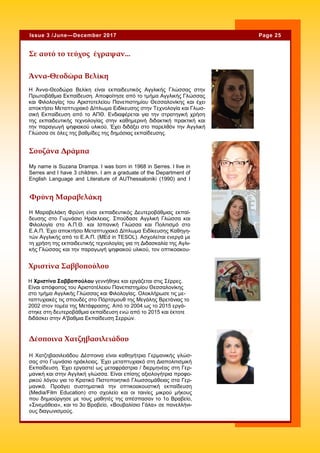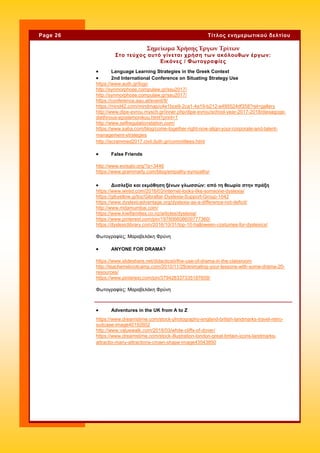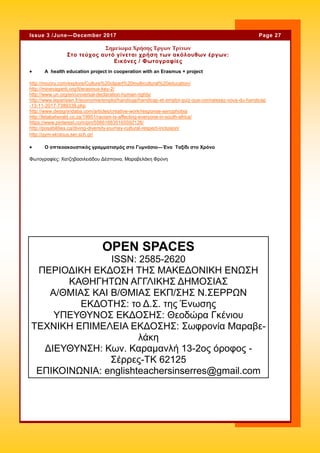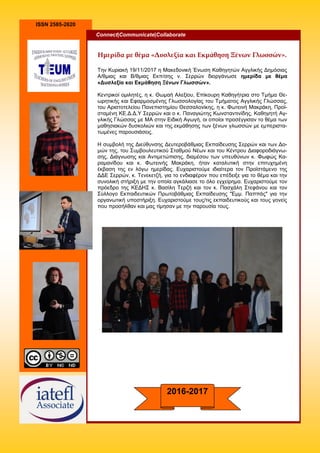This document summarizes the 2nd International Conference on Situating Strategy Use held in Komotini, Greece in September 2017. It provided an opportunity for over 100 educators from 26 countries to share experiences and debate the role of language learning strategies. The conference included keynote speeches, panels and presentations on less researched issues related to strategies. It also allowed participants to interact virtually with pioneers in the field of strategy research like Joan Rubin and Anna Chamot. The organizing committee and student volunteers are commended for hosting this inspiring event.
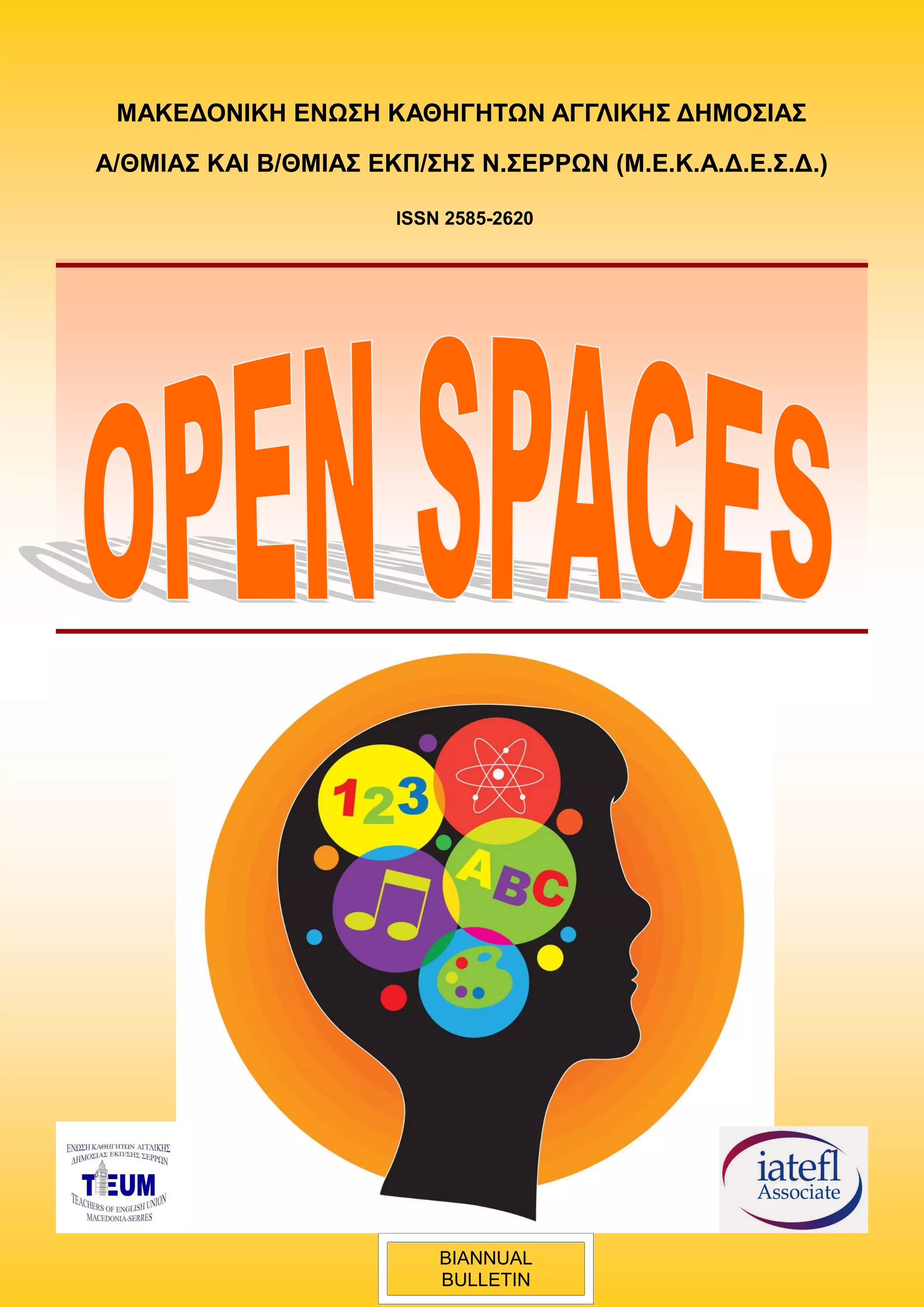

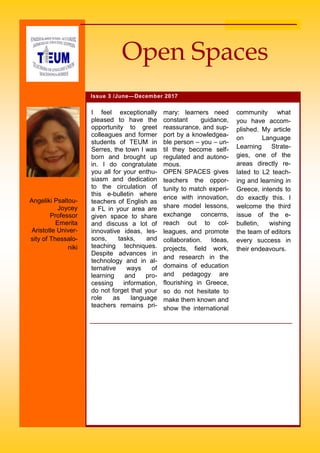

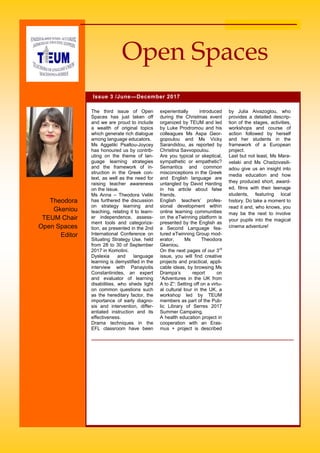
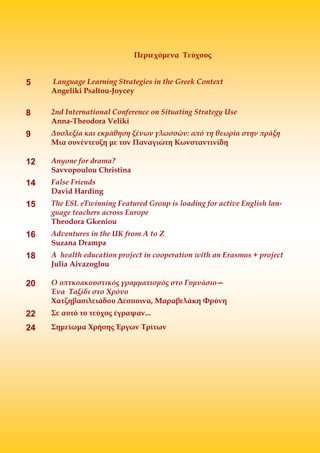
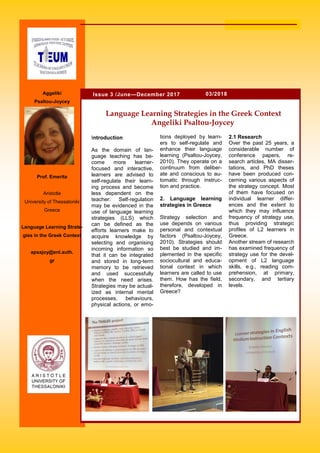
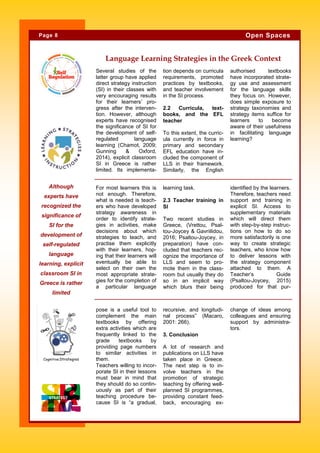
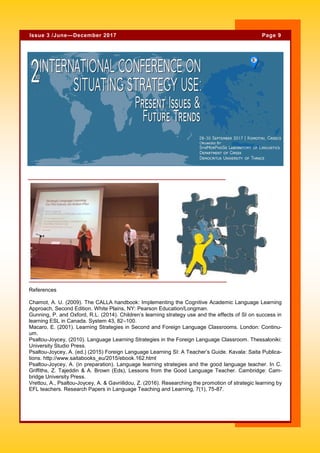
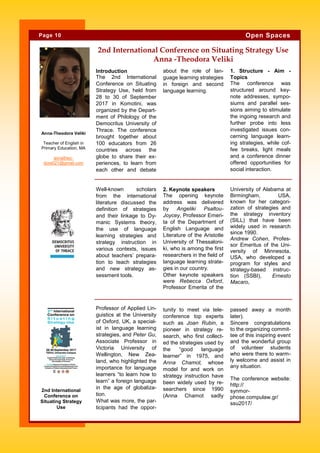
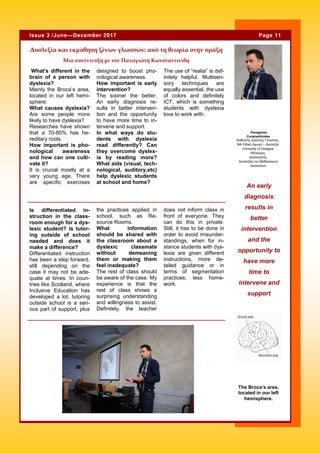
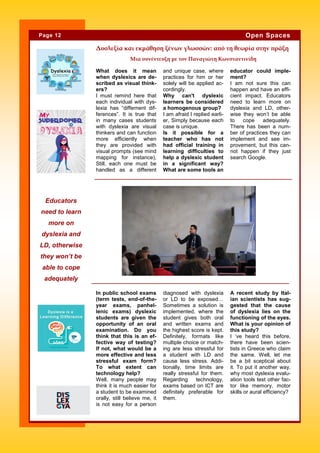
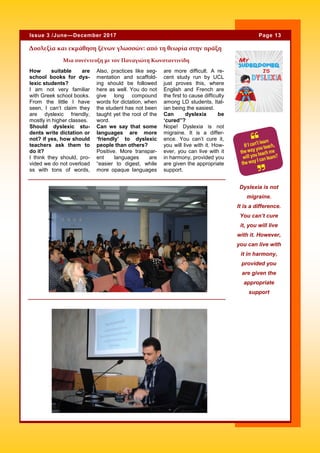
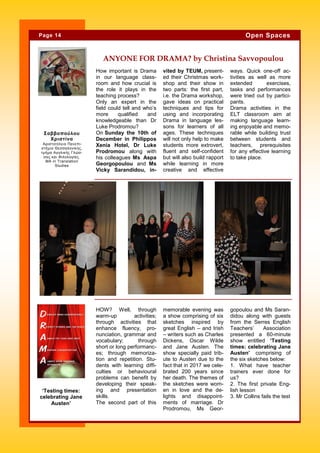
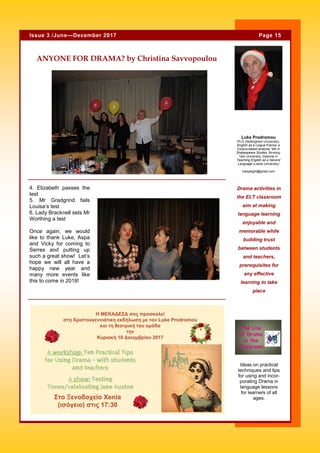
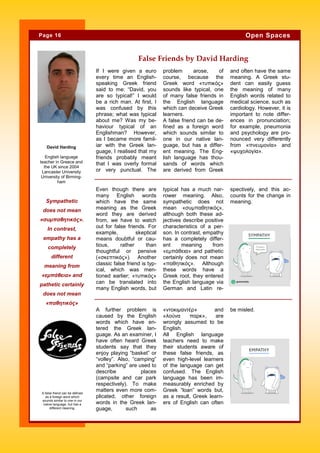
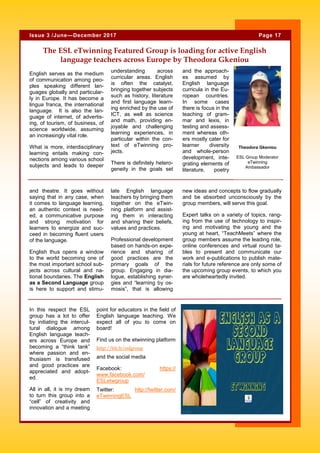
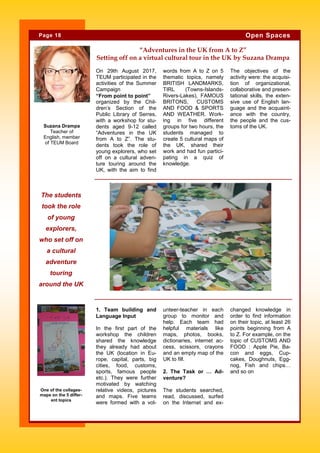
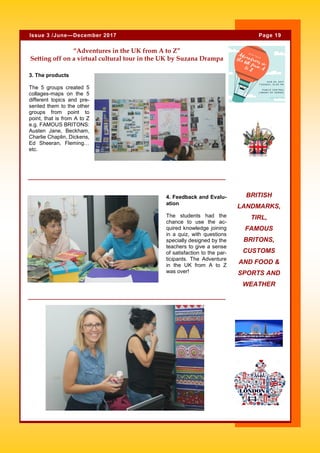
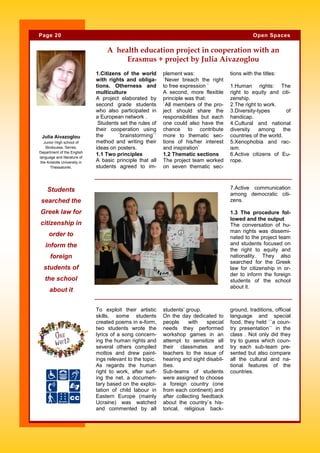
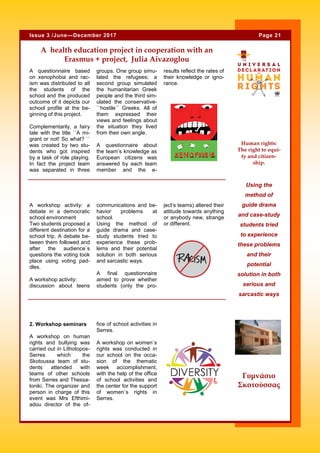
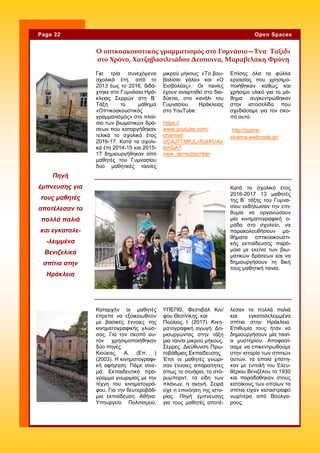
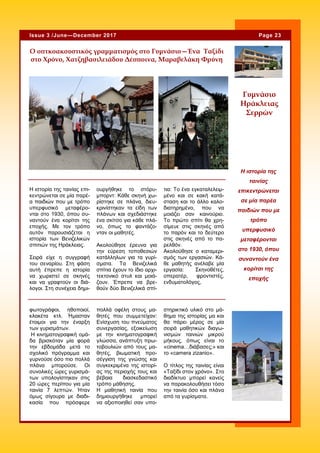
![Angeliki Psaltou-Joycey (BA, Dipl. TEFL, MA, PhD) is Professor Emerita of Applied
Linguistics, School of English, Aristotle University of Thessaloniki. Her research
interests and publications focus on Language Learning Strategies and other indi-
vidual differences in SLA, Greek as an S/FL, Interlanguage Studies, and Mul-
tiligualism. She has authored Language Learning Strategies in the Foreign Lan-
guage Classroom (2010) and co-authored The Temporal System of Modern Greek:
Studies from the Perspective of Greek as a Foreign Language [in Greek] (2011);
co-edited Cross-Curricular Approaches to Language Education (2014), and Lan-
guage Learning Strategies: Theoretical Issues and Applied Perspectives (2017);
and edited Language Learning Strategy Instruction: A Teacher’s Guide (2015).
During1998-2014 she was the elected president of the Greek Applied Linguistics
Association (GALA), the national affiliate of AILA. She is also a member of the editorial
boards of national and international academic journals.
Angeliki Psaltou-Joycey
David Harding
Σε αυτό το τεύχος έγραψαν...David Harding has been an English language
teacher in Greece and the UK since 2004. He studied at Lancaster University
and the University of Birmingham. He lives in Serres and is an online tutor.
Page 24 Open Spaces
Ms Julia Aivazoglou is a state school teacher at the Junior High school of
Skotoussa, Serres. She is a graduate of the Department of the English language
and literature of the Aristotle University in Thessaloniki. She has been coordinat-
ing cross-curricular projects organising bilingual workshops in a continuous at-
tempt to raise students’ interest in creativity and versatility.
Panayiotis Constantinides is an English teacher, certified oral examiner and
licensed Dyslexia evaluator. He holds a Certificate in English Methodology from
the British Council, a Diploma in IT from the Open University, U.K. and a Mas-
ter in Inclusive Education (Research, Policy and Practice, Support for Learning)
from the University of Glasgow. Furthermore, he has been teaching English for
over 25 years and assessing students with Learning Difficulties since 2012. Fi-
nally, since 2000 he has been working for the European Public Investment
Program of the University of the Aegean, Department of Product and
System Design and since 2006 he has been an oral examiner of lev-
els B2-C2.
Julia Aivazoglou
Panayiotis Constantinides
Σε αυτό το τεύχος έγραψαν...](https://image.slidesharecdn.com/openspaces3rdissue-180620204409/85/Open-spaces-3-rd-issue-24-320.jpg)
